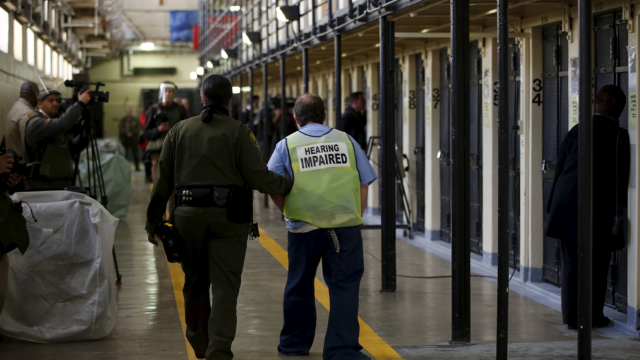The sunshine and beaches of Florida conceal a sobering reality: the state has the sad distinction of having the second-largest number of people on death row in the United States, trailing only California who has the highest number of prisoners on death row.
Florida continues to be an outlier, obstinately sticking to a system that is fraught with controversy, despite the fact that the number of executions across the country has decreased. This article investigates the complexity of Florida’s death penalty system, examining its constitutionality, effectiveness, and justice in the process of carrying out murder sentences.
There is a troubled past.
Beginning in the 1700s, when hangings were a popular public spectacle, the state of Florida has a long and troubled history of the use of the death penalty. Furman v. Georgia, a historic decision that was heard by the Supreme Court in 1972, was the event that threw the entire system into turmoil and marked the beginning of the contemporary era of the death sentence. Due to the fact that the Supreme Court determined that the laws governing the death sentence across the country were arbitrary and capricious, a de facto moratorium on executions was implemented across the country.
After a period of four years, the Supreme Court of the United States, in the case of Gregg v. Georgia, reinstated the death sentence with revised guidelines. This made it possible for Florida to pass its present statute regarding the use of the death penalty in the year 1979.
The Existing System: A Complex Maze of Legal Obstacles at Every Turn
The process of carrying out the death penalty in Florida is a complex maze of legal procedures. In contrast to the majority of other states, jurors merely recommend sentences in instances involving the death penalty. Thereafter, the ultimate authority to decide whether or not to inflict the death penalty rests with the judges, even in cases when the jury recommends life imprisonment. There has been a great deal of debate on this issue, with some individuals believing that it grants judges an excessive amount of power and diminishes the function of juries.
Another factor that makes matters more complicated is the lengthy appeals procedure. In a case involving the death penalty, it may take decades to exhaust all of the legal remedies available. Despite the fact that this ensures a comprehensive evaluation, it also causes the families of victims to experience a delay in closure and raises doubts about the cost-effectiveness of the system. Last but not least, the governor is the one who has the power to give mercy, which might result in a reduction or reprieve of a death sentence. On the other hand, this authority is rarely called upon.
Concerns Regarding Innocence, Race, and Inhumane Executions Are Included in the Human Cost
The death penalty system in Florida is plagued by racial inequities, which is a problem. According to data provided by the Death Penalty Information Centre, the percentage of African Americans who are sentenced to death is significantly higher than the percentage of white offenders who are put to death. Significant questions regarding fairness and equal justice under the law are raised as a result of this.
One more terrible truth is the possibility of carrying out executions on innocent people. The terrible potential that Florida may have been responsible for the deaths of innocent people is brought to light by documented incidents of erroneous convictions on death row, some of whom were later exonerated by DNA evidence.
In addition, the procedures that are utilised for the administration of deadly injections in the state of Florida are being investigated. The executions of condemned individuals have been said to have been botched, resulting in the individuals suffering from extended and severe pain before finally succumbing to their suffering. Because of these events, major concerns have been raised regarding the humaneness of the method of execution that Florida has chosen to use.
The Controversy: Does the Execution of the Death Penalty Serve Justice?
Proponents of the death penalty claim that it is a just form of vengeance for the most egregious crimes, and that it provides a feeling of closure for the families of those who have been victimised. Additionally, they believe that it prevents others from committing crimes of a similar nature, so safeguarding society.
These arguments are rebutted by the opponents. According to a number of studies, the death penalty is not an effective deterrent against criminal behaviour. Furthermore, due to the irreversible character of the criminal justice system, the penalties of a false conviction are perpetual. An additional issue of disagreement is the high cost of the death penalty in comparison to the cost of life imprisonment without the possibility of parole. The funds that are spent on drawn-out trials and appeals could be put to greater use by providing assistance to victims or funding initiatives that aim to prevent criminal activity.
What the Future Holds for the Execution of Death Penalty in the State of Florida
Uncertainty persists regarding the future of the death penalty in the state of Florida. Recent decisions made by the Supreme Court have restricted the authority of judges in instances involving the death sentence, which may have implications for the distinctive sentencing structure that Florida employs. In addition, the constitutionality of the state’s method for carrying out executions is being challenged in ongoing litigation.
It would appear that public sentiment towards the death sentence in Florida is undergoing a shift. Despite the fact that the majority of people continue to support the death penalty, polls indicate that many citizens are open to alternatives.
Considering alternatives to the death sentence is something that the state of Florida needs to do if it wants to move forward with a justice system that is both just and functional. In addition to providing a permanent penalty, life imprisonment without the possibility of parole eliminates the possibility of innocent people being put to death. There is also the possibility of investigating restorative justice programs, which are centred on the concept of healing for both offenders and victims.
Final Thoughts
It is a complicated and contentious matter that the death sentence system in Florida is in place. While some people believe that it is an essential instrument for the administration of justice, others point out the inherent defects that it possesses and say that it should be abolished. As the discussion continues, there is one thing that is certain: the existing system in Florida needs to undergo significant overhaul. Examining the facts, taking into account the human cost, and investigating alternative approaches are all ways in which the state of Florida might strive towards developing a justice system that is both effective and fair.
The purpose of this call to action is not limited to merely addressing law and statistics. It is about the lives that are affected by this system, including the relatives of victims who are looking for closure, the persons who have been committed to death who are facing an uncertain future, and the state that is struggling with the ethical and financial costs of the death penalty.









